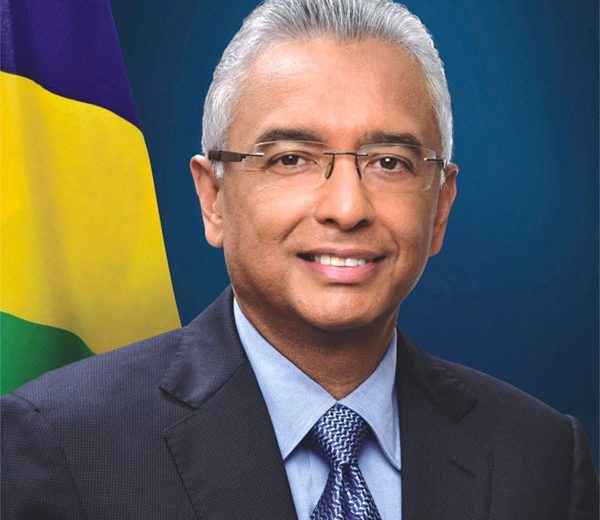Kenya’s 10 Years of Devolution The insights on the just-concluded 10-year Mark
This year, thousands of local and international delegates gathered in Uasin Gishu County to commemorate, discuss, learn, and share best practices on issues affecting sub-national governments, as well as to provide trade and investment opportunities for communities in Uasin Gishu and neighbouring counties. The agreed-upon theme of the conference was “10 Years of Devolution: The Present and Future,” with the sub-theme “Driving Transformation from the Local Level: County Governments as the Centre of Economic Development.”
The conference was opened by President Ruto and closed by his deputy. The long-standing opposition was also in attendance to contribute his thoughts on ten years of devolution. In what appeared to be a soft and smooth landing, the president made it clear to the delegates who attended the conference that he had a submission to make in terms of devolution.
“That we have a proven hack, a smart solution to kill the two birds of poor governance and efficient service delivery with one stone. That hack is digitization and automation. I therefore encourage you to embark on the journey of integrating digital solutions and ICT into service delivery and project implementation.” He said.
However, as the conference progressed, residents in the host city had different perspectives to share. Others praised the government, while others criticised it for the high cost of living in the country, with some even focusing on the city, emphasising that this is the same country where Kenya’s current President, William Samoei Ruto, is from. The situation should be different. The devolution conference, on the other hand, appeared to be a success.
Nonetheless, there were heated exchanges at the conference between the ruling party UDA, led by President Ruto, and the opposition party Azimio La Umoja, led by Mr. Raila Odinga. President Ruto did not hold back in criticising Azimio La Umoja, the party’s leader, for refusing to accept the results of the 2022 elections, urging him to take them and move on. On the other hand, Kenyans believe that, despite the election period having ended, the current president is still campaigning and needs to stop and focus on matters of national interest. On the other hand, political analysts have characterised President Ruto’s move as a means of elevating opposition leader Raila Odinga.
Raila, often referred to as the “Father of Devolution,” defended the mass protests that he has been leading in the better cause of this year by stamping the 10-year mark: “But there is a positive side to the protests. They indicate that the people are taking control of their destiny. In the days of the old order, nobody questioned the PC, the DC, or the DO. Too few knew what had been allocated for their development. Development was what the DC or PC said. Devolution has come with a new boss: the people. Development is what the people say it should be.”
Mass protests in Kenya. The opposition vs. the government
Kenya was hit with a wave of opposition-led mass protests, resulting in a spike in countrywide disorder. Kenya’s former Deputy President William Ruto of the Kenya Kwanza (Kenya First) Alliance was elected president last year, defeating opposition leader and former Prime Minister Raila Odinga of the Azimio La Umoja One Kenya Coalition Party.
Odinga mobilised his supporters in February 2023 and set a “deadline” for the government to address issues such as elections and high living costs, among other grievances, within 14 days. The coalition also announced the formation of the Movement for Defence of Democracy, a youth resistance wing. Odinga’s Kenya Kwanza allies dismissed both as destabilising attempts. Due to unmet demands, the coalition officially launched the protest movement on March 9, calling for the first nationwide protest on March 20.
President William Ruto is currently advocating for bipartisan talks to maintain the spirit of cooperation for bettering the nation’s governance. This historical pattern emphasises the importance of cross-party dialogue in steering Kenya’s political landscape towards stability and progress. A fierce power struggle among the political elite is at the heart of Kenya’s bipartisan political talks. These discussions serve as a battleground for parties and their leaders to negotiate, strategize, and form alliances to protect their interests. The underlying motivations frequently revolve around resource distribution, control over government institutions, and advancing personal and political agendas.
Kenya has recently experienced the Building Bridges Initiative (BBI), a significant endeavour to introduce substantial amendments to the Kenyan constitution. This process involved a broad range of Kenyan citizens, resulting in legal challenges as various population segments questioned its legality. Additionally, multiple groups launched public awareness campaigns to expound on the contents of the proposed document, eliciting a range of reactions from agreement to dissent. Finally, the legal battle ended in court, resulting in the stalling and, to some extent, dissolution of the BBI. The Kenyan judiciary upheld the arguments presented by various stakeholders, attesting to the legality of the process.
A similar situation has arisen just lately. The political elite, representing various factions, have reached an agreement on specific issues such as, but not limited to, cost of living, audit of 2022 presidential election results, restructuring and reconstitution of the Independent Electoral and Boundaries Commission (IEBC) and related matters, measures to prevent interference with political parties, outstanding constitutional issues, governance issues, adequate checks and balances, the question of bounties, and the question of bonuses. Some of these issues have far-reaching consequences for ordinary citizens. If the two factions can agree on these issues, it may lead to changes to the Kenyan Constitution.
Political leaders are following in the footsteps of history. These discussions are based on mutual agreements between the two opposing parties rather than legal foundations.
The freedom of speech and that of the press
Article 33 of Kenya’s 2010 constitution explicitly states that everyone has and shall have the right to freedom of expression. It does, however, have some limitations. The freedom to seek information, receive ideas, and impart knowledge are all examples of freedom of expression. The right to express themselves through the arts (creative expression), academic freedom, and the freedom to conduct scientific research
According to the Constitution, this right is not absolute. Thus, there are certain limitations to the enjoyment of this freedom, which are as follows: [as stated in subsection two of Article 33 of the Kenyan Constitution, 2010], an expression that constitutes hate speech; a term that has the potential to incite violence; a word that promotes hatred; expressions used in war propaganda.
The NCI Act established the NCIC in 2008 to combat hate speech and promote national cohesion and integration. The Act defines hate speech as the use or dissemination of threatening, abusive, or insulting content with the intent to incite ethnic hatred. However, press freedom in Kenya is guaranteed, even though press coverage has faced various challenges. Earlier this year, the ODM leader launched an aggressive attack on press freedom after calling on his supporters to boycott one of the country’s most widely circulated newspapers.
On the other hand, Kenya Kwanza politicians have increased their attacks on mainstream media, warning that it risks becoming irrelevant if it continues antagonising the ruling government. They accused Kenyan media outlets of being biassed and distorting facts about the government’s agenda, particularly the recently passed Finance Bill 2023. Following receipt of this information, the Media Council immediately engaged the government and media stakeholders to address the relationship between government and media to protect journalists’ rights in the country.


